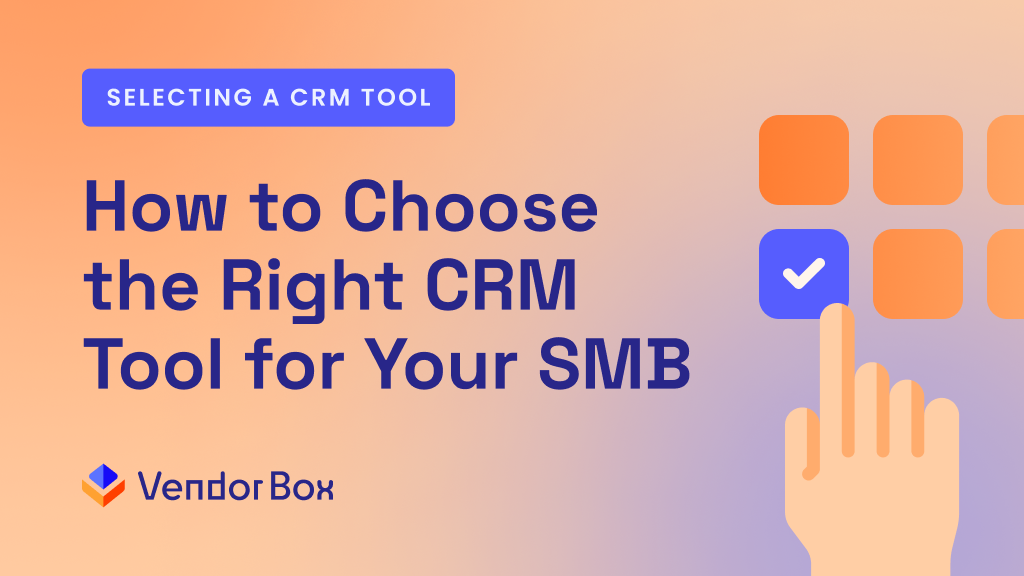
Over 60% of small and medium-sized businesses (SMBs) have adopted Customer Relationship Management (CRM) systems to streamline operations and enhance customer interactions. However, selecting the right CRM for your SMB requires careful consideration of various factors to ensure it aligns with your business needs and goals.
Assessing the Need for a CRM in Your Business
Before diving into the selection process, it’s crucial to determine whether your business would benefit from a CRM system. Consider the following indicators:
- Accessibility of Customer Information: If retrieving comprehensive customer data takes more than 30 seconds, a CRM can centralize this information for quicker access.
- Marketing Campaigns: Running targeted marketing campaigns necessitates tracking outreach efforts and measuring effectiveness, tasks well-suited for a CRM.
- Customer Support Requirements: A CRM provides visibility into customer histories and issues, essential for support teams aiming to deliver personalized service.
- Task Automation: Automating repetitive tasks like follow-up emails or lead assignments can save time and boost productivity, capabilities inherent in many CRMs.
- Data-Driven Decision Making: CRMs offer analytics tools that inform sales strategies and customer retention efforts through data insights.
Key Considerations for SMBs When Choosing a CRM
Unlike startups, SMBs have distinct requirements that should guide their CRM selection:
- Industry Alignment: As businesses mature, it’s vital to choose a CRM tailored to your industry and capable of supporting your team’s size and specific workflows.
- Flexibility: Opt for a CRM that can adapt to evolving business needs without adding unnecessary complexity, ensuring it remains a valuable tool as your operations grow.
- Budget and Customization: While affordability is important, prioritize CRMs that offer robust customization options to tailor the system to your unique processes.
- Customer Retention Focus: Select a CRM with features designed to help maintain and strengthen existing customer relationships, not just acquire new ones.
- Integration Capabilities: Ensure the CRM can seamlessly integrate with your existing systems, such as accounting software, ERP systems, or inventory management tools, to maintain a cohesive tech ecosystem.
Understanding the Variety of CRM Solutions
The CRM market offers a plethora of options, each designed to cater to different business functions and industries:
- Sales-Focused CRMs: Designed exclusively for sales teams, these CRMs emphasize pipeline management and sales tracking.
- Marketing Automation CRMs: These focus on automating marketing tasks, managing campaigns, and analyzing marketing performance.
- Comprehensive CRMs: Some solutions combine sales and support functionalities but may exclude marketing features.
- Industry-Specific CRMs: Certain CRMs are tailored for specific industries, offering specialized features for sectors like real estate or e-commerce.
Comparative Overview of Popular CRM Tools
To assist in your decision-making process, here’s a comparison of several notable CRM tools suitable for SMBs:
| Pipedrive | Copper | Nutshell | Sugar CRM | Freshworks | |
| Contact Management | ✔ | ✔ | ✔ | ✔ | ✔ |
| Lead Management | ✔ | ✔ | ✔ | ✔ | ✔ |
| Email Marketing | ✔ | ✔ | ✔ | ✔ | ✔ |
| Task Tracking | ✔ | ✔ | ✔ | ✔ | ✔ |
| Dashboard & Analytics | ✔ | ✔ | ✔ | ✔ | ✔ |
| Role-based Access | ✔ | ✔ | ✔ | ✔ | ✔ |
| Ticket Management | X | X | X | ✔ | ✔ |
| Migration Support | Outsourced | Help Center Article | Help Center Article | In-house | Help Center Article |
Next Steps
Choosing the right CRM is a pivotal decision that can significantly impact your business’s efficiency and customer satisfaction. To receive a personalized recommendation tailored to your specific needs, consider utilizing resources like Vendor Box’s free recommendation tool.
If you’re already using a CRM but are curious about better-suited options, explore our free CRM health check instead.
By carefully evaluating your business requirements and the capabilities of various CRM tools, you can select a solution that will support your SMB’s growth and success.


